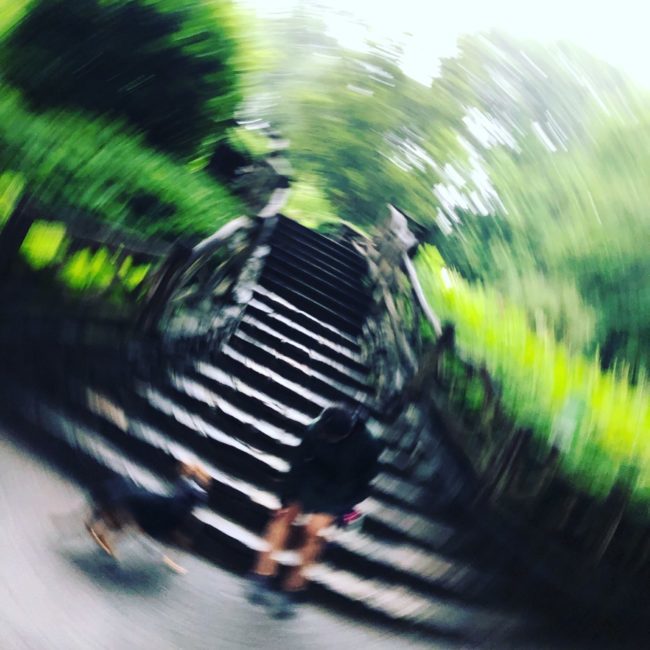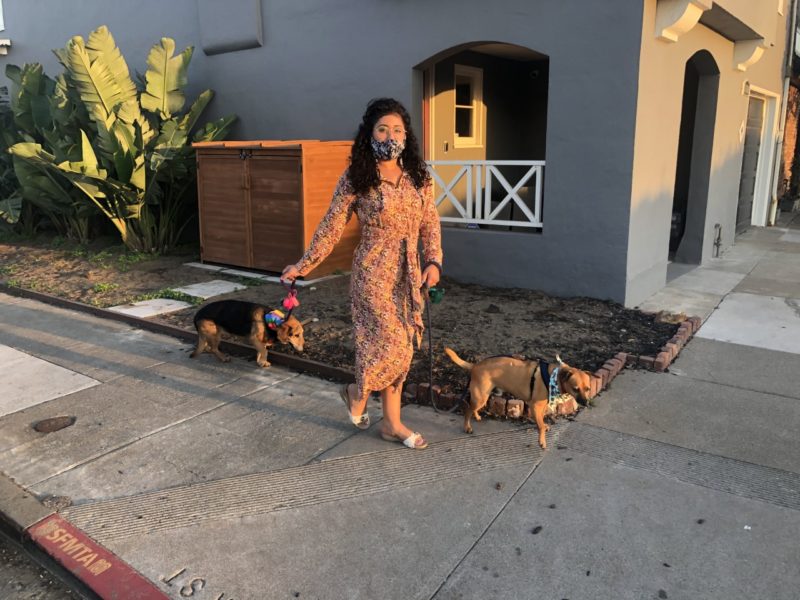Of Place and Self

The precarious space I find myself in boils up a sense of great fear. This fear is insidious, slowly wrapping around my resting body like a serpent, unnoticed until I’m enveloped by its grip. I occasionally break free — but the serpent returns, stronger and more determined.
I’ve faced many challenges in my young life: loss of more family and friends than I can count on both hands, bodily illness, the daily struggles of being a child of immigrants from a country where the religion and color of people’s skin is a birthmark for ones who don’t quite belong to any place or anyone. There is a particular type of resiliency that develops when one is forced over decades to continually adapt, a character predicated on intimate knowledge of injustice and loss. It is a strength many of us are calling on now.
For the past three years, I was living in my beloved New York City, my only true hometown, which meant I could see my sister, brother, and father as often as I’d wish – which is a lot! I built friendships with like-minded people, creating spaces where I felt accepted and heard. It was not easy navigating a long-distance marriage, as my spouse was working in San Francisco, but we were making the most of our weekends together. On March 12 I flew out to visit him; San Francisco went into shelter-in-place that week, and offices across the country, including mine in New York, began asking people to work from home. I was no longer visiting the city by the Bay; I had moved, indefinitely. There was no opportunity to say goodbye to friends and loved ones. I built a life I was proud of, a life I valued. Now I needed to re-write my world again, figure out how to belong to another place.
My new neighborhood is a mix of a sleepy beach town and yuppie oasis. My two pups and I walk to the beach, a stone’s throw away from the home we are adjusting to. The houses we pass on our way to the sandy haven are mostly weathered by fog and wind. A few new modern developments have Teslas charging in the driveways. Contrary to my previous bustling life full of daily greetings with neighbors and friendly business patrons, my walks are quiet. No one knows me, and I don’t know them.
Eager to find connection, I reach out to Fatima, a new friend I admire; speaking with her makes me feel like we belong to each other, even if we don’t belong anywhere else. With Fatima, an Italian-Moroccan now living in England, I share the experience of being a Muslim woman who doesn’t wear hijab and is living a non-traditional life for an Amazigh-Moroccan — a life that is not uncommon, but is not widely accepted by traditional families like mine. Her experiences in Italy resonate with me on a deep level. As she puts it, “I was so proud to be Italian, but Italy was never proud of me.” As an American-Moroccan, I know that pain. I am honored to be a US citizen, this young country faced with the uncomfortable and transformative task of seeing itself for what it truly is and what it must do to accept its past; but there are so many times when I’m left out of the story, whether from preference or lack of understanding.
Fatima and I would normally visit family in Morocco over the summer, to be immersed in our culture and speak our native language freely — this year, there are no sweet moments with far-away loved ones, no opportunities to feed the part of ourselves we are conditioned to hide in other spaces. I ask her how it feels to lose a major coping mechanism. She doesn’t have a clear answer, and neither do I.

There are days when I feel like I can handle the unplanned move, the distance from family, and the uncertainty of the times, and there are days I can’t bear the heaviness of it all. When I ask other friends what they are doing to protect their mental, physical, and emotional health, the answers are all the same: take it day by day. Sometimes exercise helps and sometimes it doesn’t. Some days a phone call with my sister is all I need, some days the time difference makes it impossible to connect. Some weeks I’m able to see a friend, some weeks I can’t garner the strength for a visit with anyone. The tireless cycle of being wrapped and released from the grip of the serpent is part of my human experience.
After saying a heart-aching virtual goodbye to my colleagues, mentors, and friends at Planned Parenthood Federation of America, I started working with SFMOMA. The museum has allowed me to dive into my love for the arts — a way to open my heart and mind to unexplored and buried feelings. Each week, I meet different exhibition teams and new colleagues, people possessed of rich and varied life experiences. Almost all of my interactions have been through video conferences from the comfort of my home, which has given me permission to be more vulnerable and transparent as I build this new community. The institution is working through its own shedding of old skin — in many ways, I feel like I joined at just the right time. Both the museum and I are forced to be more exposed, to reflect more thoughtfully and intentionally.
I end most days watching beautiful sunsets over the Pacific Ocean and in those moments I feel like I am exactly where I belong. There is no clear path, but maybe that idea was always built on an illusion that I have any — let alone much — control over my life. Today, I’m present and conscious of the now. Tomorrow is not for me to hold.